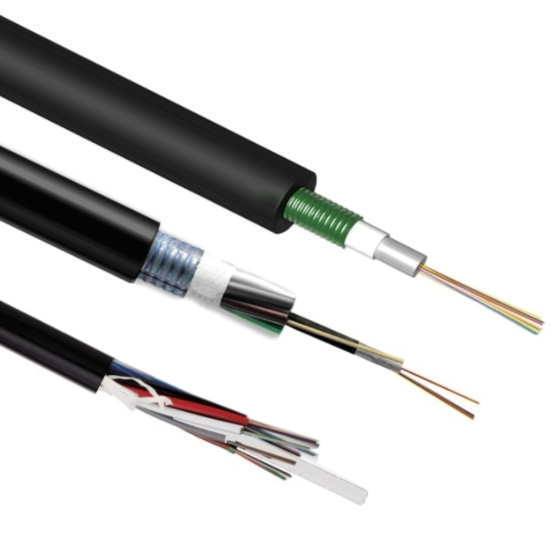Oufu Optical Fiber Cable Co.,Ltd
Address: Shenyang, Liaoning, China
Contact person: Manager Zhang
Phone: 400-964-1314
Mobile phone: +86 13904053308
【whatsapp && wechat】
2024-06-04 1577
Outdoor Fiber Optic Cable: Common Issues and Troubleshooting
Outdoor fiber optic cables play a crucial role in today's telecommunication systems, but they are also prone to various issues due to their exposure to harsh environmental conditions. This article discusses some common problems encountered with outdoor fiber optic cables and provides troubleshooting tips to help resolve them.

Common Issues:
1. Signal Loss or Attenuation
Signal loss is a common issue with outdoor fiber optic cables. It can be caused by factors such as cable bending, excessive length, impurities in the glass, or damage to the cable jacket or fibers. Attenuation results in reduced signal strength, which can impact data transmission speed and quality.
2. Connector Issues
Connectors are a critical component of fiber optic cables, and issues with connectors can lead to signal loss or complete loss of connectivity. Common connector problems include dirt, debris, corrosion, or improper alignment.
3. Environmental Factors
Outdoor cables are exposed to various environmental factors, such as extreme temperatures, humidity, water ingress, and UV radiation. These factors can cause damage to the cable jacket, fibers, or connectors, leading to performance issues.
4. Mechanical Damage
Outdoor cables are prone to mechanical damage due to accidental cuts, crushing, or abrasion. This type of damage can cause breaks in the fibers, leading to signal loss or complete failure.
Troubleshooting Tips:
1. Inspect the Cable
Visually inspect the cable for any signs of damage, such as cuts, abrasions, or cracks in the jacket. Look for any bends or kinks that may be causing excessive attenuation.
2. Clean the Connectors
If you suspect connector issues, clean the connectors using a lint-free cloth and alcohol-based cleaning solution. Ensure that the connectors are dry before reconnecting them.
3. Check the Alignmentwww.adsscable.cn
Inspect the alignment of the connectors. Ensure that they are properly seated and tightened. Improper alignment can cause signal loss or complete loss of connectivity.
4. Use Testing Equipment
Utilize testing equipment such as optical power meters, optical time-domain reflectometers (OTDRs), or visual fault locators to identify the location and nature of the issue. These tools can help you pinpoint the problem and determine the appropriate troubleshooting steps.
5. Replace Damaged Sections
If the cable is damaged, replace the damaged section with a new cable segment. Ensure that the new cable segment matches the specifications of the original cable and is compatible with the existing system.
6. Protect Against Environmental Factors
To prevent environmental factors from causing damage, consider using protective measures such as cable trays, conduits, or underground ducts. Ensure that the cables are properly sealed and protected from exposure to moisture, extreme temperatures, or UV radiation.
In conclusion, outdoor fiber optic cables can encounter various issues due to their exposure to harsh environmental conditions. However, by understanding the common problems and employing effective troubleshooting techniques, you can identify and resolve these issues quickly and efficiently. Remember to always inspect, test, and replace damaged sections to maintain optimal cable performance.